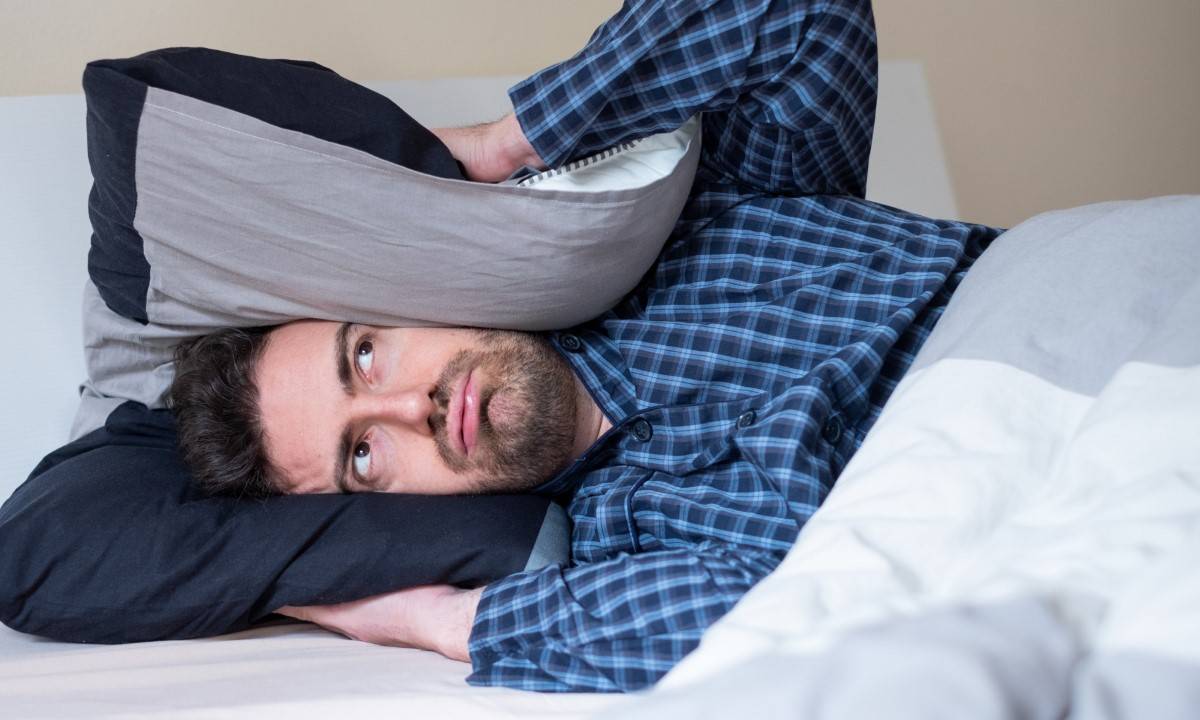Why Do I Feel Dizzy Each Morning? How To Stop Waking Up Lightheaded.
Explore the reasons behind morning dizziness and discover effective solutions. Dive into our guide on managing “Dizzy Spells in the Morning” for a balanced start to your day.
Key takeaway
| Common Causes of Morning Dizziness | Potential Solutions |
| Dehydration | Drink more fluids daily |
| Low blood sugar | Eat protein and complex carbs |
| Medication side effects | Talk to your doctor |
| Inner ear problems | See an audiologist or ENT |
| Anxiety | Practice relaxation techniques |
Introduction
While dizzy spells in the morning can result from various medical conditions, they often have simpler explanations that can be addressed with lifestyle changes or treatment adjustments. Understanding the wide range of causes is the first step to finding the right solutions.
Why Does Dizziness Happen More Often in the Morning?

There are a few reasons why bouts of dizzy spells in the morning tend to be more common than later in the day:
- Dehydration from sleep: Going 6-8 hours without fluids can make symptoms like [lightheadedness more noticeable] (internal link)
- Blood sugar and blood pressure fluctuations: Both can drop during sleep and cause dizziness upon standing
- Side effects of medications: Some doses may wear off overnight before your morning dose kicks in
- Changes in sleep position: Sleeping flat on your back can aggravate some underlying causes
Additionally, activities like suddenly getting out of bed or bending over to pick up clothes can trigger dizzy spells in the morning in those predisposed to them.
Being aware of these factors means you can take steps to minimize situations that tend to precede your dizziness episodes.
What health issues can dizzy spells cause in the morning?

There is a wide spectrum of medical conditions, ranging from benign to serious, that list dizziness as a potential symptom. Here are some of the most common causes of dizzy spells in the morning:
-
Dehydration
Even mild dehydration can make you feel lightheaded when you change positions because of drops in blood volume. If you don’t drink enough fluids daily, morning dizziness can become more frequent because of dehydration that builds up overnight.
-
Low Blood Sugar
Also called hypoglycemia, low blood sugar can lead to dizziness along with fatigue, shakiness, confusion, and mood changes. It tends to cause symptoms first thing in the morning before eating if you have reactive hypoglycemia or diabetes.
-
Medication Side Effects
Certain prescription medications list dizziness or lightheadedness as potential side effects. Diuretics, blood pressure medications, anxiety medications, and sedatives are some examples. These effects may be more pronounced when does wear off overnight.
-
Migraines
Migraine headaches sometimes have dizziness or vertigo as an accompanying symptom rather than head pain. Vertigo upon waking can signal the start of a migraine episode.
-
Infections of the Inner Ear
Viral infections of the ear structures, like labyrinthine or vestibular neuritis, affect your balance signals and lead to episodes of dizzy spells in the morning and vertigo. Bacteria and fungi can also infect the inner ear.
-
Meniere’s Disease
This chronic inner ear condition causes severe, random dizziness attacks, ringing ears, and hearing loss. For those with Meniere’s, dizzy episodes are often the most severe first thing in the morning.
-
Heart Conditions
Certain heart issues like arrhythmias, valve problems, or transient ischemic attacks can interfere with normal blood flow, occasionally causing lightheadedness or dizziness upon standing or waking.
-
Anxiety Disorders
Anxiety doesn’t just cause mental symptoms, but physical ones like dizziness and vertigo as well. Morning anxiety leads some people to wake up already feeling off-balance. This list covers some of the many medical reasons you might feel dizzy in the morning. Even conditions like the flu, pregnancy, or a stomach virus can trigger dizziness with position changes after lying down all night.
When Should I See a Doctor About dizzy spells in the morning?
Occasional brief episodes of morning lightheadedness are usually not a major concern on their own. However, it’s an idea to make a doctor’s appointment if you experience:
- Frequent bouts of dizziness in the morning that disrupt your daily routine
- Severe, persistent dizziness along with other concerning symptoms
- dizzy spells in the morning that cause you to faint or fall
- The new onset of severe vertigo appears linked to issues like headaches or hearing/ear changes
- Risk factors like heart disease or stroke that could be related
- There are no apparent explanations for daily dizzy spells in the morning despite self-care attempts
Seeking timely medical care helps identify or rule out serious causes. Doctors can check for underlying illness and provide treatment options to help minimize troubling dizzy spells in the morning.
How Can I Reduce Dizziness When I Wake Up?
If you regularly feel dizzy upon waking or standing, making a few lifestyle modifications could help decrease morning symptoms:
Stay Hydrated
Consistently drink plenty of water during the day so you don’t wake up dehydrated after sleep without fluids overnight. Sources recommend at least eight 8-ounce glasses daily.
Avoid Blood Sugar Crashes
To help prevent low blood sugar dizzy spells:
- Don’t skip meals
- Include protein and high-fibre carbs at each meal
- Eat small snacks as needed, especially before bed
See Your Doctor
Discuss medications and supplements with side effects like dizziness and any for which doses could wear off overnight. Adjustments may help.
Sleep Well
Aim for enough quality sleep without interruption that could interfere with circulation and inner ear function at night.
Exercise
Regular physical activity supports healthy blood flow and may help prevent spells of lightheadedness.
Limit Caffeine and Alcohol
Both can contribute to dehydration and blood sugar swings, making dizzy spells in the morning more in those prone to it.
While you investigate medical reasons for dizziness through doctor’s visits, making positive lifestyle changes can often help lessen the severity and frequency of dizzy spells in the morning.
When Should I Use Home Remedies vs Seeking Medical Treatment?
Trying simple home remedies often helps relieve symptoms for occasional brief dizzy spells in the morning not linked to an identifiable medical condition.
However, it’s wise to consult your doctor first before self-treating to rule out serious illness requiring medical treatment. Don’t assume all cases of AM dizziness are harmless without an evaluation.
Get emergency care immediately if morning dizziness or vertigo occurs alongside:
- Sudden severe headache
- Double vision or loss of vision
- Numbness/weakness
- Slurred speech
- Confusion
As these can indicate a stroke, you should not delay urgent medical care if new dizzy spells in the morning occur, along with such red flag symptoms, even in the morning.
Useful Home Remedies to Help Treat dizzy spells in the morning
While awaiting doctor’s input or working in tandem with medical care, you can try these home tips to ease early morning dizziness:
Over-the-Counter Medications
- Antihistamines like meclizine can reduce dizziness from inner ear problems.
- Motion sickness medicines like dimenhydrinate may relieve vertigo.
- Some pain medications offer secondary dizziness
Increase Fluid Intake
Drink two full glasses at wake-up and stay well-hydrated all day to prevent AM dehydration and dizziness.
Apply Cold Compresses
Cold packs can ease inner ear inflammation for dizziness, migraines, or ear infections.
Try Acupressure
Massaging acupressure points on the hands and feet may reduce morning vertigo episodes in some people.
| Acupressure Point | Location |
| Pericardium 6 (P6) | Inner wrist, about three finger widths below the palm |
| Stomach 36 (ST36) | Outside lower calf muscle, a hand width below the kneecap |
| Bladder 10 (BL10) | Nape of the neck in muscle next to spine |
Use Grounding Techniques
To minimize anxiety-related dizziness:
- Press feet firmly to the floor, sitting up
- Place hands on a wall for balance as needed
- Shift focus to calming external stimuli
Modify Morning Routines
To prevent sudden dizziness when getting upright:
- Sit up slowly sideways before standing
- Avoid stooping right away
- Wait to lift objects
- Have drinks and snacks within reach
By tailoring treatment based on the cause and using appropriate medical care, most cases of troubling dizzy spells in the morning can be successfully managed for relief.
When to Seek Emergency Care for dizzy spells in the morning
While home remedies can temporarily minimize many causes of AM dizziness, it is crucial to seek prompt medical attention if certain red flags or stroke-like symptoms accompany your Dizzy Spells in the Morning
Get emergency medical care if waking up dizzy along with:
- Sudden trouble walking, loss of balance, or lack of coordination
- Sudden onset of a very severe headache unlike your “usual” headaches
- Loss of vision in one or both eyes
- Confusion, memory loss, difficulty speaking
- Facial droop
- Numbness or limb weakness
If you experience severe morning vertigo combined with any stroke warning signs like those above, call 911 or emergency services right away, as delay reduces the treatment window.
With timely evaluation and care, doctors can work to minimize brain damage related to vessel blockages and significantly improve outcomes after strokes that first appear as bad dizzy spells upon waking. Receiving urgent diagnosis and management is essential.
Answers to Frequently Asked Questions About Dizzy Spells in the Morning:
Can dehydration cause you to feel dizzy in the morning?
Yes, waking up even mildly dehydrated can trigger lightheaded, dizzy spells when getting out of bed or standing up, because of blood pressure drops. Be sure to stay well hydrated round-the-clock.
Is it normal to feel dizzy first thing in the morning?
Occasional, brief morning dizziness can be normal upon standing from lying down overnight. But seek medical advice if frequent vertigo disrupts your morning routine.
How can I stop waking up dizzy every day?
To combat daily AM dizziness:
- Check for medical reasons like diabetes or infection
- Prevent dehydration and blood sugar drops
- Improve sleep quality
- Take medications as prescribed
- Reduce alcohol intake
- Practice balance exercises
Can anxiety cause dizziness in the morning?
Yes, awakening with an anxiety attack can stimulate dizzy symptoms, as anxiety leads to fast breathing and physical arousal that lowers blood flow to the brain upon standing up quickly.
What vitamins should I take for chronic morning dizziness?
No specific vitamins treat chronic morning vertigo by default. Doctors may recommend diet changes or individualized supplements once they determine an underlying deficiency, causing your frequent early morning dizzy spells.
If you awaken with recurring bouts of dizziness that haven’t yet been evaluated medically, don’t hesitate to book an appointment. Proper diagnosis of the root cause is key so that any nutrient needs or treatment options are effectively tailored.
The Take Away: Understanding dizzy spells in the morning
Spells of dizziness in the morning can be disruptive and concerning when they occur regularly. But by recognizing common triggers like dehydration or blood sugar swings, you can take steps at home to help minimize episodes of morning vertigo.
It’s also essential to see your doctor for an exam when dizzy spells upon waking are frequent or severe to check for underlying medical conditions requiring individualized treatment. Moreover, seeking emergency care for sudden severe dizziness combined with other red flag symptoms is critical, as this presentation can signify stroke.
Often, consistent lifestyle tweaks and appropriate medical care decimate troublesome bouts of lightheadedness in the morning. Diagnosed and managed promptly, the cause of dizzy troubles after waking up can typically be handled effectively.



